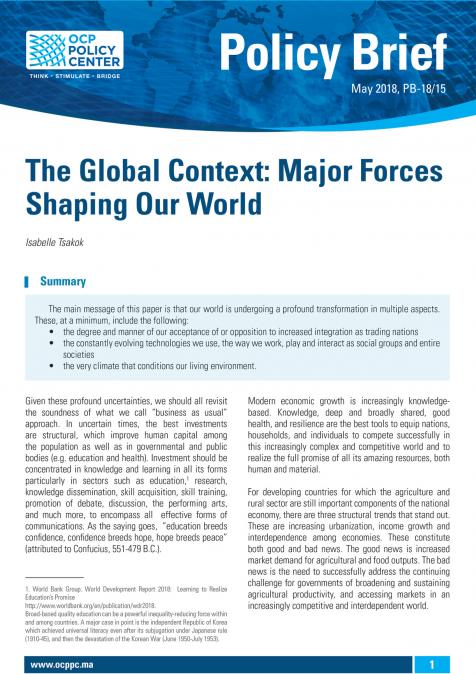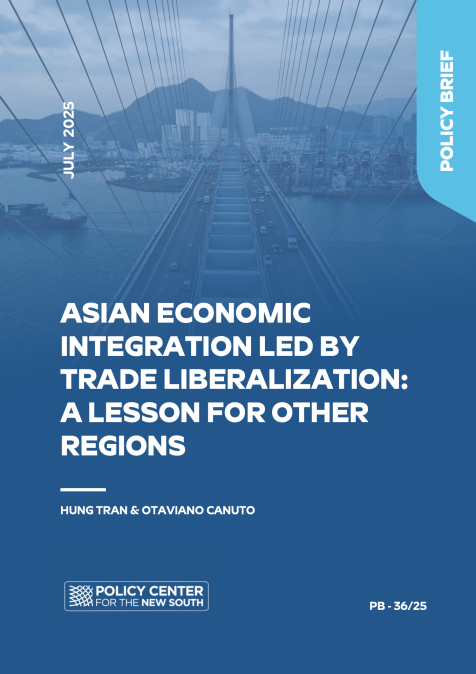Publications /
Policy Brief
Policy Brief
The Global Context: Major Forces Shaping Our World
May 21, 2018
The main message of this paper is that our world is undergoing a profound transformation in multiple aspects. These, at a minimum, include the following:
- the degree and manner of our acceptance of or opposition to increased integration as trading nations
- the constantly evolving technologies we use, the way we work, play and interact as social groups and entire societies
- the very climate that conditions our living environment.








